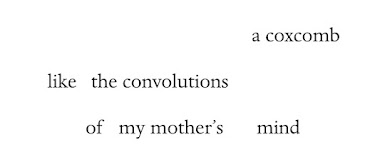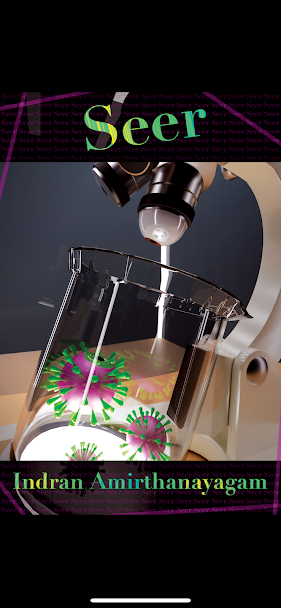The 'process notes' pieces were originally solicited by Maw Shein Win as addendum to her teaching particular poems and poetry collections for various workshops and classes. This process note and poems by Bonnie Wai-Lee Kwong are part of her curriculum for Maker, Mentor, Muse and her poetry classes at the University of San Francisco and Dominican University. Thanks for reading.
The department of peace is in many ways a continuation of my first two books, ravel and The Quenching. The personal, the political, the historical and nature have been a continuous space where I explore a spectrum of emotions. I have been gravitating towards collaborations and performance. I relish the connection with my collaborators and immediate feedback from the audience.
I performed the poem “Contraband” and read a few others from my first book ravel in the Poetry Flash series, where I met Penny Edwards, a Professor at UC Berkeley. Penny invited me and Maw Shein Win to collaborate on a poetry project around refugees. Maw and I met with Nwe Oo, Viet Le, César Rubio and others, who recounted their experiences to us. We wrote poems collaboratively, drawing from these narratives, from nature, the news and various other forms of movement across borders. We selected excerpts of recordings in Nwe Oo, Viet Le and César Rubio’s voices. Julie Zhu composed a sound collage1 with them. I wrote a number of poems from narratives others have shared with me. I am grateful to them for allowing me to enter what I consider a sacred space and open a window.
I began the titular poem the department of peace during the pandemic. Rebecca Nie and Cecelia Jiayue Wu invited me to perform in Sankofa Concert: Healing, Reflection, and Renewal at Stanford’s Memorial Church in October 2021. The loss of lives from the coronavirus was happening in parallel with violence from the withdrawal of US troops from Afghanistan. I had been reading Barbara Lee’s memoir, where she describes “sankofa” as “a [Ghanian] principle that teaches us that we must go back to our roots to move forward.”
I wrote autobiographically about my first boycott
as a child:
The poem recalls my birth in Wisconsin, where my parents met the Mennonite couple Dwight and my namesake Bonnie, conscientious objectors in the Vietnam War who chose to teach in the Democratic Republic of Congo. My father’s defiance of the Hong Kong police during colonial times takes me to Barbara Lee and Dennis Kucinich’s proposal, the Department of Peace, which seeks to promote peace and conflict resolution, and address the root causes of terrorism and other forms of violence. My hope is for the poem to be a starting point for a deeper quest into the building blocks of peace. It is aspirational, an invitation to contemplate action and change. Rebecca Nie has developed a video2 from the spoken word and music performance.
The most difficult decision in this book was to
write autobiographically about physical abuse at the hands of my mother and her
mental illness:
I have heard anecdotally of many cases of mental illness among Asian and Asian American women. There is a need to share individual narratives. I believe to jump high, I need to crouch low. I have made peace with my mother and gathered the strength to care for her from writing about her. I have published these poems so others may know they are not alone.
My collaborators’ ideas were integral to many of the poems. Pam Ybanez asked me to create a performance on gentrification, which resulted in “loiter,” a piece about sex work. Chris Chafe proposed a collaboration around nuclear weapons, which I titled “absolute zero concerto.” The new piece converged with the theme of “drowned river,” an intimate portrait of a family whose patriarch was involved in the nuclear weapons program. Hanneke van Proosdij suggested a piece on wildfires in California, which became “fo2 火 fire.” “You’re just waking up” was a video3 collaboration I initiated. I juxtaposed the murder of George Floyd with a sci-fi scenario of moving to the ocean, living and swimming in water which needs to be purified. Sean Yarborough offered his music, “Plastic Business.”
The text of the poems is dispersed throughout the page. This represents the way I think. In some poems like “drowned river”, there is more than one way readers can construct their own sentences. As we slow down the interpretation of reality and allow time for contemplation, the empty space becomes an invitation for thoughts to coalesce beyond the page.
I wanted this book to speak to the times. I have personal connections to events unfolding around the world. I needed time to respond to these events and to rewrite poems until they spoke to me. The timeline was particularly challenging as I wanted the book to be ready for a reading in Los Angeles with other members of Sixteen Rivers Press, an event we had planned around the AWP Conference. The collective gave me the flexibility to depart from the schedule and take more time to write. When the manuscript was ready, the editing and proofreading took place with both quality and velocity. The book would not have been the same without the collective.
Footnotes:
1. Sound collage: https://redshadowtree.earth/file/running_working
2. Video: https://redshadowtree.earth/file/department_of_peace
3. Video: https://redshadowtree.earth/file/just_waking_up
Bonnie Wai-Lee Kwong works in many mediums: poetry, music, theater, performance, video and software. Born in Wisconsin and raised in Hong Kong, she lived in the San Francisco Bay Area for two decades before returning to Hong Kong to care for her mother. She can still be spotted in California from time to time. The department of peace is her third book of poetry, following The Quenching (Finishing Line Press) and ravel (Neopoesis Press). She has staged two plays: Liriope and There's No Stopping to My Thoughts. Renku.earth, an Elixir application she built for writing poetry collaboratively, was a runner-up for the 2024 Elixir Consultancy Prize from the consultancy firm Erlang Solutions.
Maw Shein Win's latest
full-length poetry collection is Percussing the Thinking Jar (Omnidawn,
2024). Her previous full-length collection Storage Unit for the Spirit House
(Omnidawn, 2020) was nominated for the Northern California Book Award in Poetry
and shortlisted for the Golden Poppy Award for Poetry. Her work has recently
been published in The American Poetry Review, The Margins, The
Bangalore Review, and other literary journals. She is the inaugural poet
laureate of El Cerrito, CA, and the 2025 Berkeley Poetry Festival Lifetime
Achievement Awardee. Win's previous collections include Invisible Gifts
and two chapbooks, Ruins of a glittering palace and Score and Bone.
She teaches poetry in the MFA Program at the University of San Francisco and in
the Low Residency MFA Program at Dominican University. Along with Dawn
Angelicca Barcelona and Mary Volmer, she is a co-founder of Maker, Mentor,
Muse, a literary community. mawsheinwin.com




%20(1)%20(1).jpg)


%20(1).jpg)

